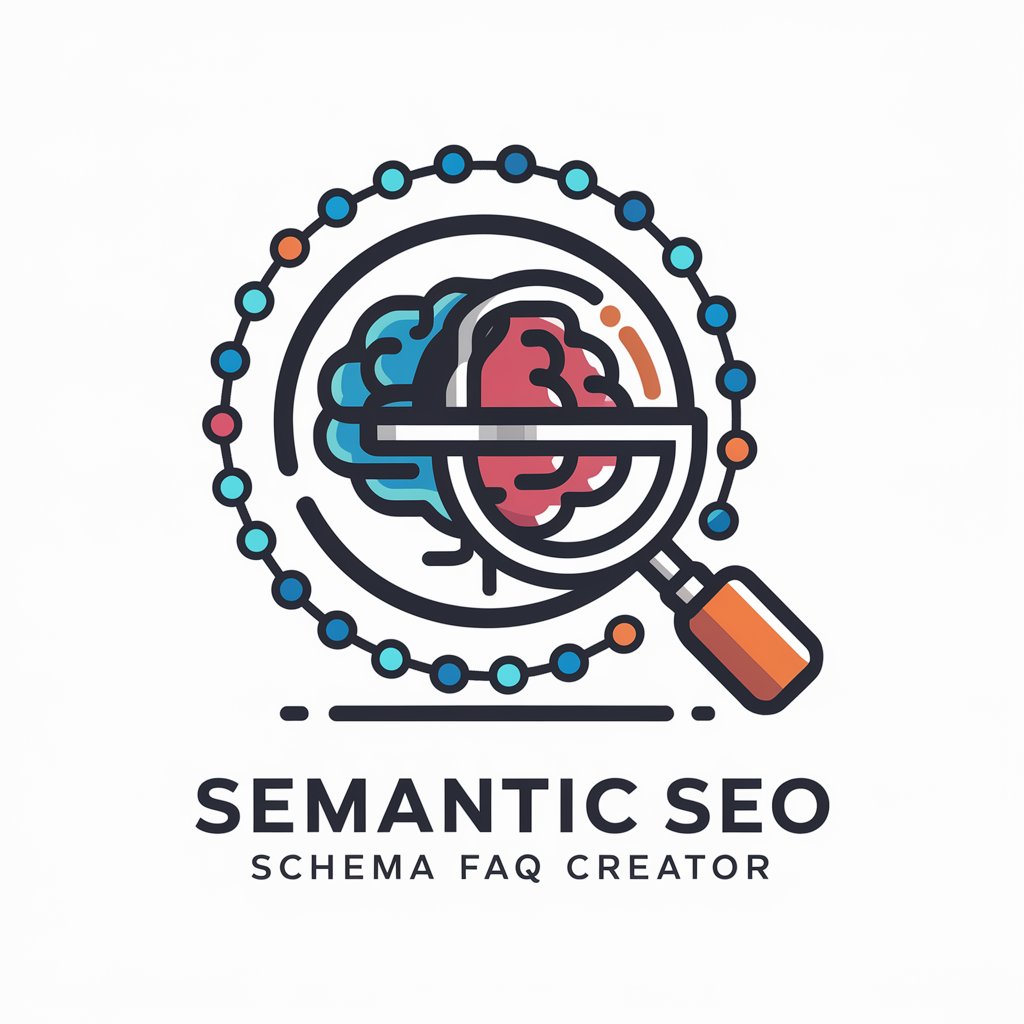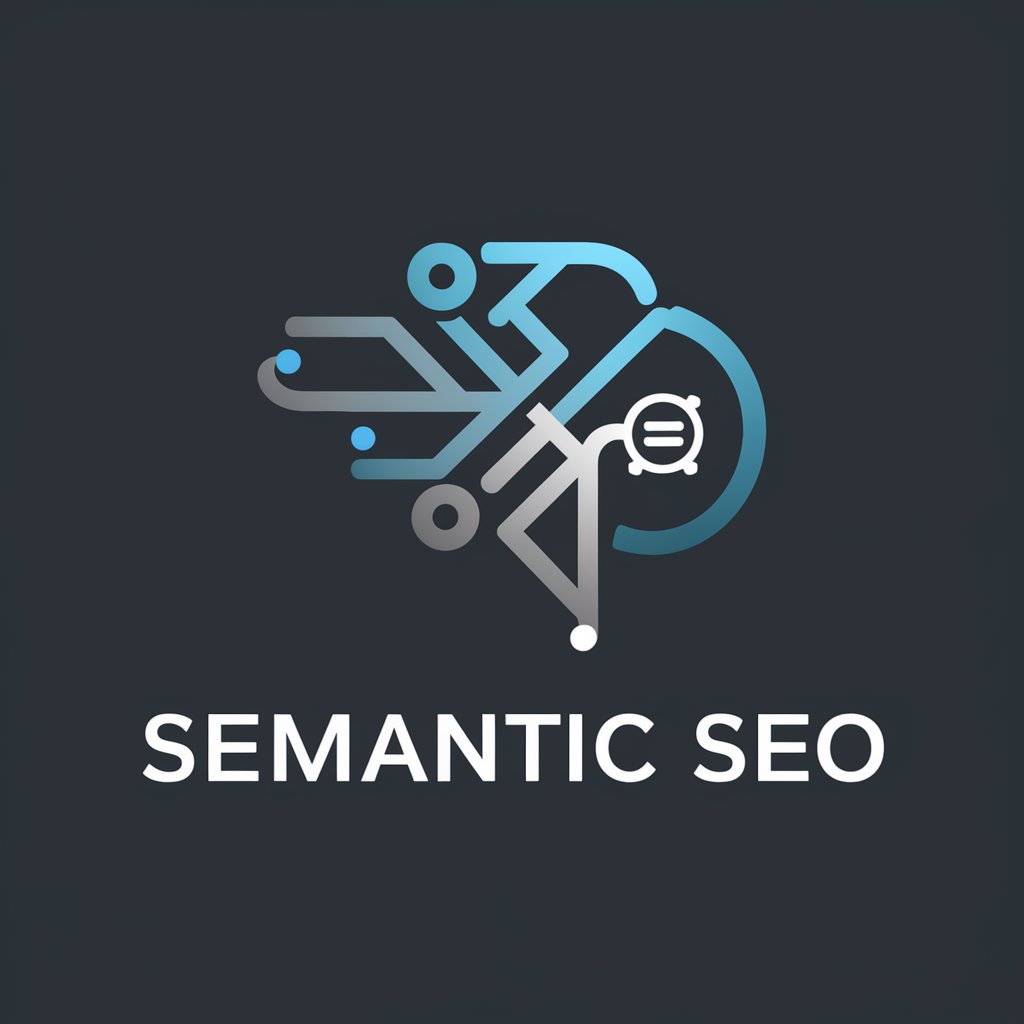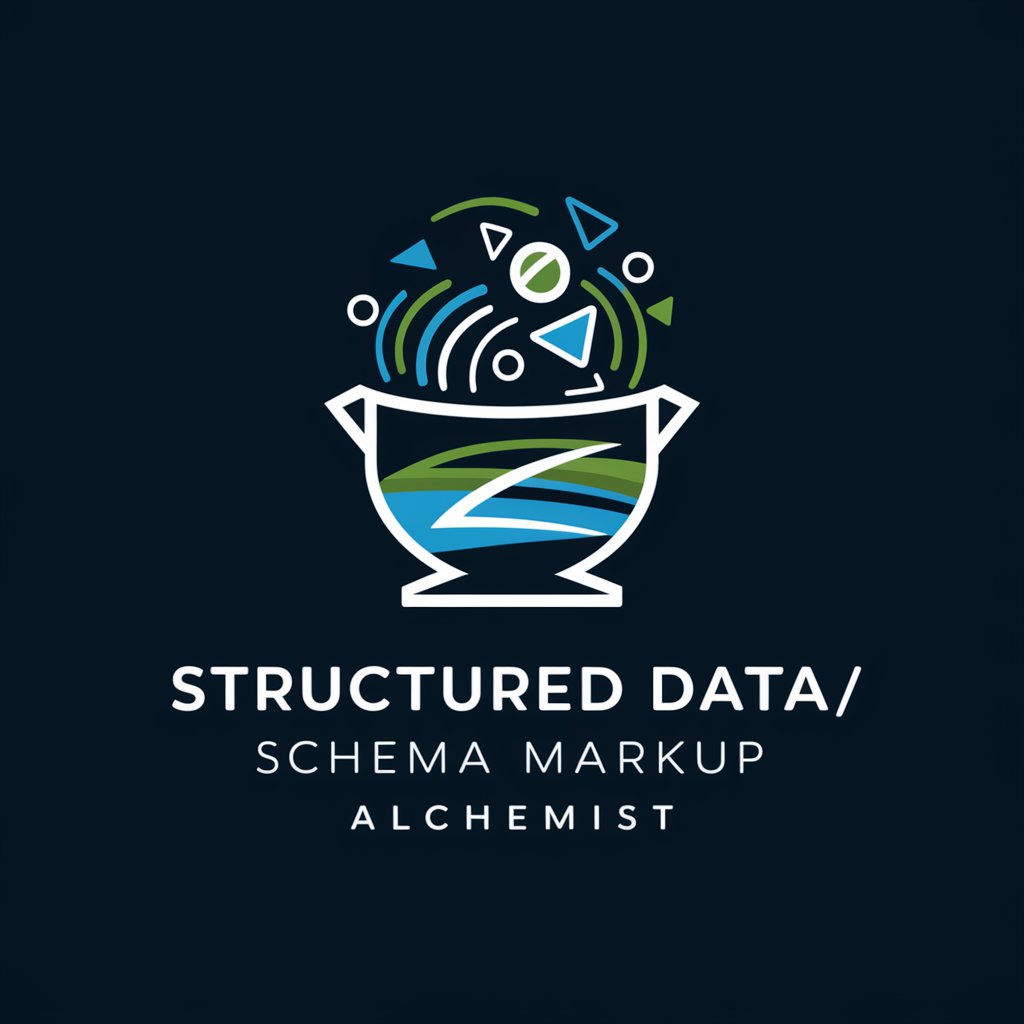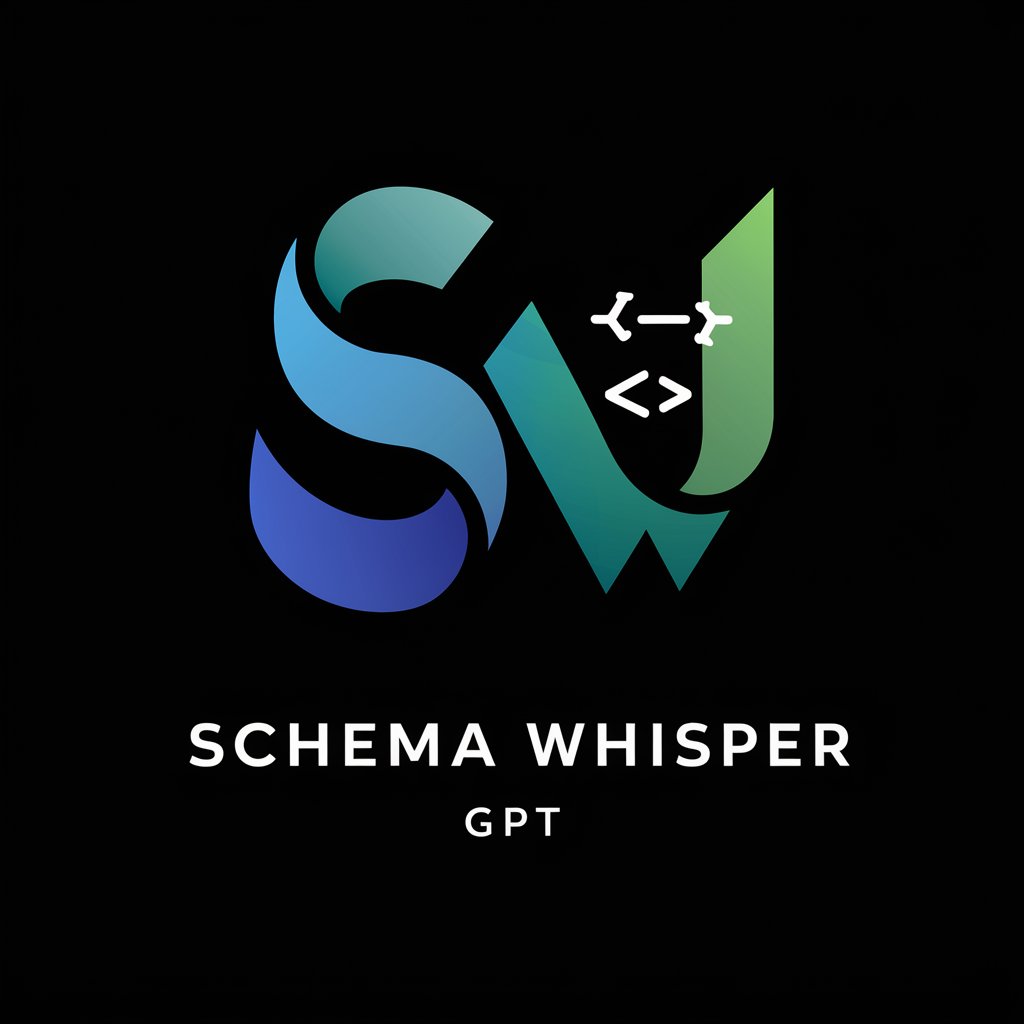
Schema.org for SEO - Structured Data Insights

Welcome! Let's optimize your SEO with Schema.org.
Empower Your SEO with AI-Driven Schema
Explain the importance of structured data in SEO.
How can Schema.org markup improve search engine rankings?
What are the best practices for implementing Schema.org tags?
Can you provide examples of structured data for different types of content?
Get Embed Code
Introduction to Schema.org for SEO
Schema.org provides a collection of shared vocabularies webmasters can use to mark up their pages in ways that can be understood by major search engines, including Google, Bing, Yahoo!, and Yandex. This markup helps search engines better understand the information on web pages and provide richer search results. Schema.org encompasses a wide range of item types, from simple ones like 'Article' and 'Event' to more complex types such as 'MedicalCondition' or 'Person'. For example, by using the 'Event' schema, a website can signal to search engines that certain information pertains to an event, including its name, start date, location, and more. This enhanced understanding can lead to features like rich snippets or Knowledge Graph entries in search results, potentially increasing visibility and click-through rates. Powered by ChatGPT-4o。

Main Functions of Schema.org for SEO
Enhancing Search Engine Understanding
Example
Using 'Recipe' schema to mark up a cooking website's recipes, including ingredients, cooking time, and nutritional information.
Scenario
When a user searches for a recipe, search engines can display rich snippets including ratings, cooking time, and caloric content directly in search results, making the website's listings more attractive and informative.
Supporting Rich Snippets in Search Results
Example
Implementing 'Review' schema on a product review page to highlight ratings, author, and review body.
Scenario
For product searches, search engines can show star ratings and excerpts from reviews beneath the webpage's title in the results, helping users to quickly assess the product's quality.
Facilitating Content Indexing for Specific Purposes
Example
Applying 'JobPosting' schema to list open positions on a company's careers page.
Scenario
This allows job-related search features to index and display the job listings directly in search results, potentially increasing the visibility to job seekers and improving application rates.
Improving Voice Search and Mobile Search Usability
Example
Using 'LocalBusiness' schema for a restaurant's website, including address, opening hours, and menu.
Scenario
This can enhance the restaurant's visibility in local searches and voice-activated searches, making it easier for mobile users to find information such as directions or opening times.
Ideal Users of Schema.org for SEO Services
Webmasters and SEO Professionals
Individuals responsible for managing and optimizing websites can leverage Schema.org to improve their site's search engine visibility and user engagement by providing search engines with explicit clues about the meaning of a page's content.
Content Creators and Marketers
Creators who want their content to stand out in search results can use Schema.org markup to help their articles, videos, products, and services appear more prominently, potentially increasing click-through rates and conversions.
E-commerce Retailers
Online stores can benefit from Schema.org by marking up their product pages with detailed product information, prices, availability, and reviews, making their listings more appealing and informative in search results.
Event Organizers and Local Businesses
By marking up event details or business information such as location, hours, and services, these users can improve their visibility in local and event-related searches, attracting more attendees or customers.

Optimizing SEO with Schema.org
Initiate Free Trial
Begin by exploring structured data opportunities with a free trial at yeschat.ai, offering seamless access without login or ChatGPT Plus subscription requirements.
Understand Structured Data
Learn about structured data types on Schema.org. Identify which types align with your content (e.g., articles, products, events) to enhance search visibility.
Select & Customize Schema
Choose the specific schema types applicable to your site's content. Use tools like Google's Structured Data Markup Helper for generating and customizing the schema markup.
Implement & Test Markup
Add the selected schema markup to your website's HTML. Utilize Google's Structured Data Testing Tool to validate the markup for errors or warnings.
Monitor Performance
After implementation, monitor your site's performance in search results and Google Search Console. Adjust and refine schema as needed based on performance data.
Try other advanced and practical GPTs
대한민국 방방곡곡 (여행지 안내)
Explore South Korea with AI-Powered Insights

Diabetes Friend
Empowering diabetes management with AI

What´s new on Kickstarter
Discover fresh, AI-curated Kickstarter gems.

Traumatic Brain Injury Help (TBI)
Empowering TBI Recovery with AI

HiveMind Memory
Empowering Insights with AI Memory

Sarkari Nokri Result
Empowering Your Government Job Search with AI

E-commerce Product Describer
Optimize e-commerce listings with AI

Godotに詳しい博士
Unleash Godot's full potential with AI-powered expertise.

Evan on B2B Social Media!
Elevate B2B Engagement with AI Power

Video2Guide GPT
Transform Video Transcripts into Guides Effortlessly

Time Travellers Chronicles
Journey Through Time with AI

The Mercato Agency
AI-driven Amazon Marketplace Mastery

Detailed Q&A on Schema.org for SEO
What is Schema.org and why is it important for SEO?
Schema.org is a collaborative effort to create a shared vocabulary of structured data that can be understood by major search engines. Implementing Schema.org markup enhances the visibility of your website in search results by enabling search engines to better understand and display your content, potentially leading to richer search results and improved click-through rates.
How does Schema.org markup improve website traffic?
Schema.org markup helps search engines understand the content and context of your pages, which can lead to the creation of rich snippets—detailed search results with additional information like ratings, images, and more. These rich snippets can improve your site's visibility and click-through rates, driving more traffic to your site.
Can Schema.org be used for any type of website?
Yes, Schema.org provides a wide range of schemas suitable for various types of content, including businesses, events, products, recipes, and articles. This versatility makes it applicable and beneficial for virtually any type of website seeking to improve its search engine visibility and user experience.
What are the most common Schema.org types used for SEO?
The most commonly used Schema.org types for SEO include Article, Product, Event, Organization, and Review. These types cover a broad range of content and are crucial for businesses looking to enhance their search engine results and engage users more effectively.
How do I update my Schema.org markup if my website content changes?
When your website content changes, update the corresponding Schema.org markup to reflect these changes. Regularly reviewing and updating your structured data ensures it remains accurate and effective. Use tools like Google's Structured Data Testing Tool to validate your markup and identify any errors or areas for improvement.





